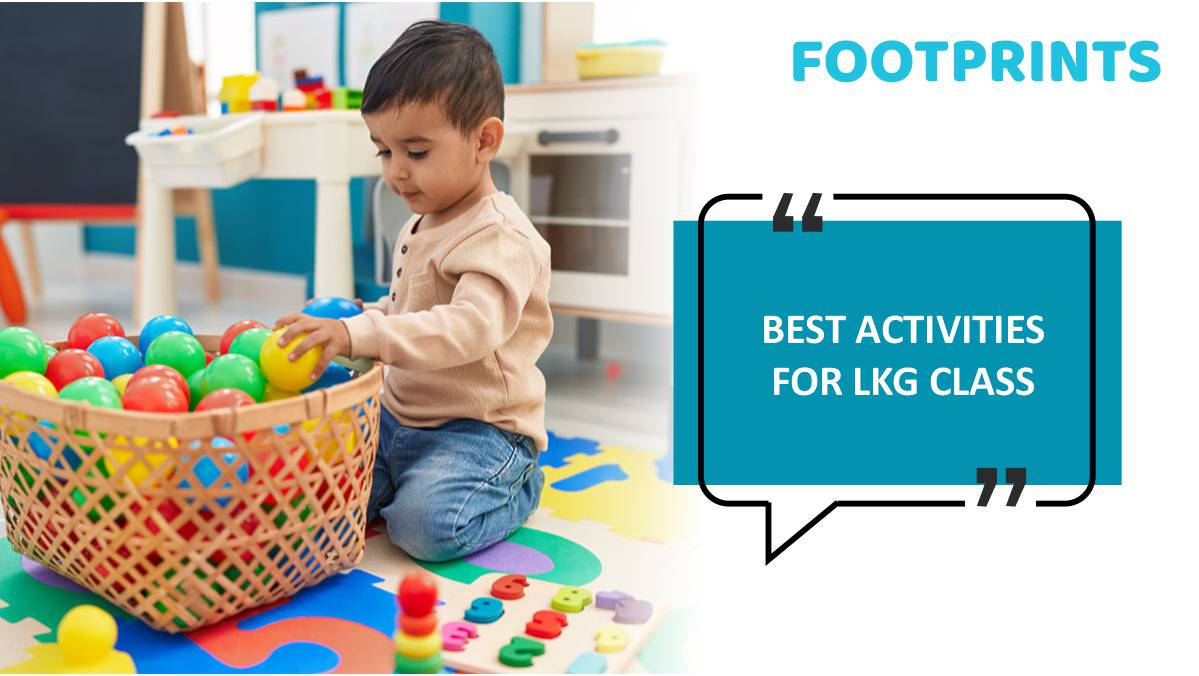
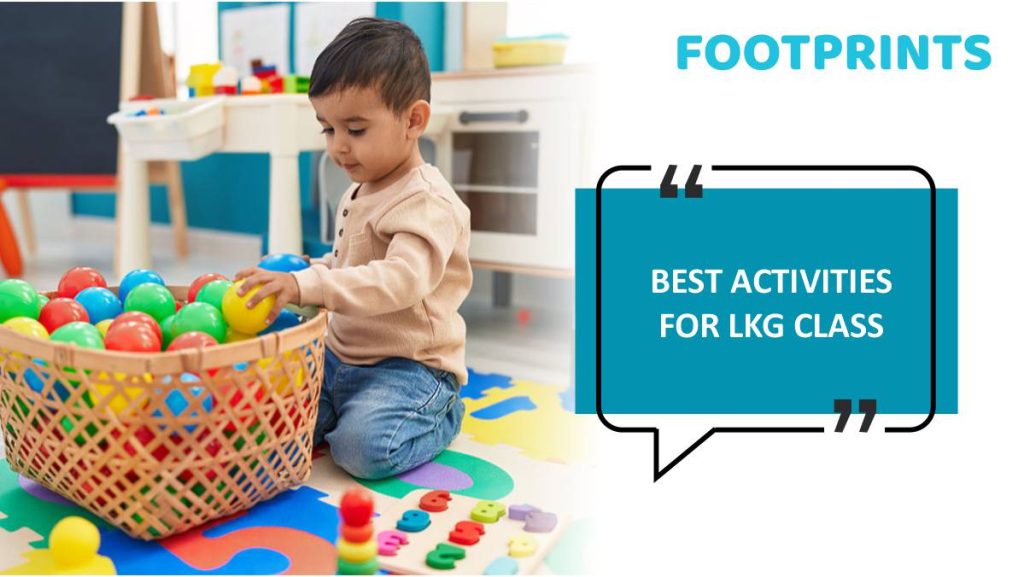
Preschool years are crucial for children since they lay the foundation for lifelong learning and growth. During those years, if children show curiosity for learning, that’s an asset to have, leading to an excellent attitude. Children are like a clean slate or unmoulded mud, which can be crafted into anything, depending on the efforts invested. Children keep on learning essential skills that will help them throughout their lives. Education in modern days is not limited only to books but has taken the form of learning through engaging activities as well. These activities are meant to educate as well as entertain. These activities promote a child’s physical, emotional, cognitive, and social development in an easy-to-go manner.
In this article, we will explore various fun activities that help nurture all the different aspects of a child’s growth.
1. Arts and crafts
Creative activities, such as arts and crafts, are good tools for helping young children improve their fine motor skills and express themselves in various ways. These activities provide young children with the opportunity to explore their imagination.
Arts and crafts activities:
Drawing and painting: We can encourage children to use different media, such as brushes, markers, crayons, or hands even with different colors, to draw and paint pictures or abstract artwork. This craft activity for LKG class or preschool children boosts their imagination, creativity, and fine motor skills.
Collage making: Glue, stickers, and various colored paper can be given to children, and they can be asked to cut the papers and create collages. This activity enhances hand-eye coordination and understanding of different shapes and sizes.
Clay or Playdough Creations: Soft clay or dough can be molded by children. This strengthens their muscles and boosts their creativity.
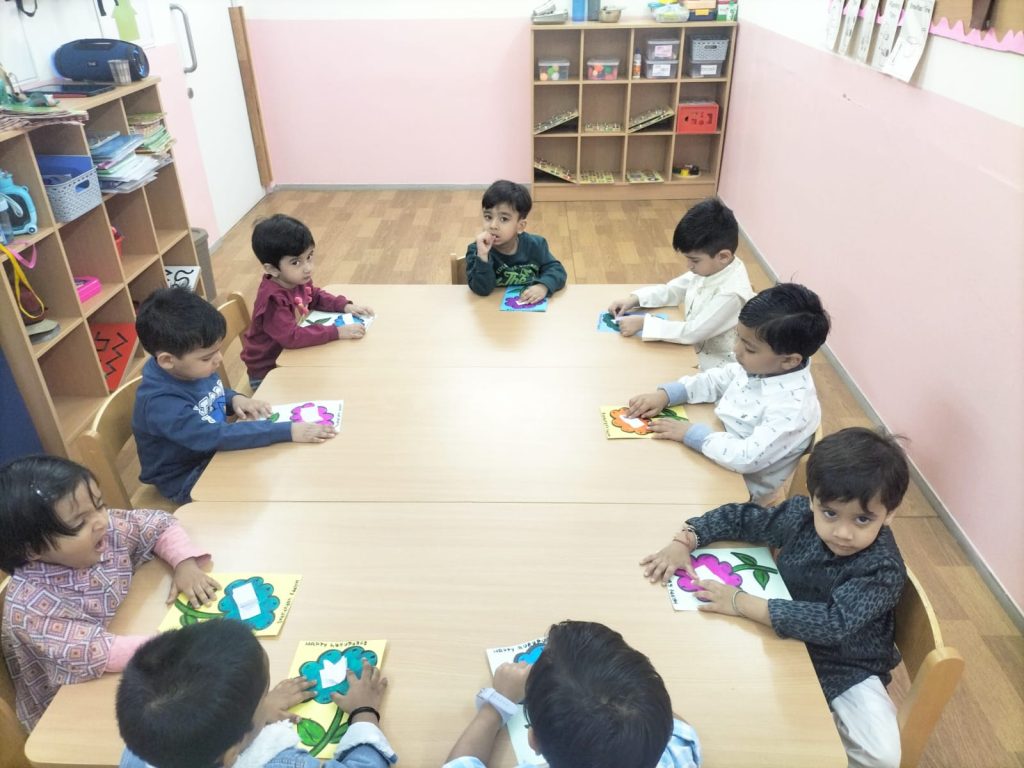
2. Sensory games
Activities that involve all five senses (sight, smell, touch, sound, and taste) are very important as they allow a child to feel connected to the outer world and help develop cognitive skills.
Sensory games activities:
Water games: We can fill a broad vessel, basin, or bathtub with water. The children then play with plastic toys, cups, and spoons. This activity can greatly improve fine motor skills, hand-eye coordination, and understanding of cause and effect. However, it should be done under supervision only.
Sensory bins: Different boxes can be filled with substances of different textures, shapes, and sizes, such as rice, sand, flour, or even water. The children can then explore sounds, textures, and even scents. We can hide small toys or other small fancy objects and let the children explore their imagination in a whole different way.
Sound exploration: Children are introduced to different musical instruments, such as drums and pianos, and allowed to experiment with different sounds. This leads to an understanding of rhythm and an enhanced auditory accord.
3. Roleplaying and storytelling
Roleplaying and storytelling are among the most effective ways to promote language, expression skills, creativity, and emotional intelligence in children. Children learn the importance of listening and communication, and they also build their vocabulary and understanding of sentence structure.
Role-playing and storytelling activities:
Dress-up plays: We can provide superhero costumes or props to encourage children to pretend to be different characters. This English activity for the LKG class nurtures empathy and teaches creativity as the children explore different characters and perspectives.
Puppet shows: Finger puppets or puppet shows can be organized to act out stories. This activity boosts imaginative play and hones social skills in children when they take on different roles.
Story reading: This activity for LKG students helps develop comprehension skills. Teachers or parents can read stories or show pictorial representations. The children should be encouraged to be curious about the characters and the plot.
4. Dance and music
Dance and music activities are not only fun but also help develop language skills, coordination, and rhythm, as well as provide exercise. Children learn to express themselves through motion and sound while promoting social interaction and listening skills.
Dance and music activities:
Dance parties: Children can be engaged in free dancing to fun and upbeat music. It helps increase coordination, rhythm, and body control.
Sing-along sessions: Encourage children to join in simple songs or nursery rhymes. This can significantly improve the memory, language skills, and listening skills of the children.
Musical chairs are a very fun way to enhance listening skills, coordination, body control, and spatial awareness by incorporating music and movement.
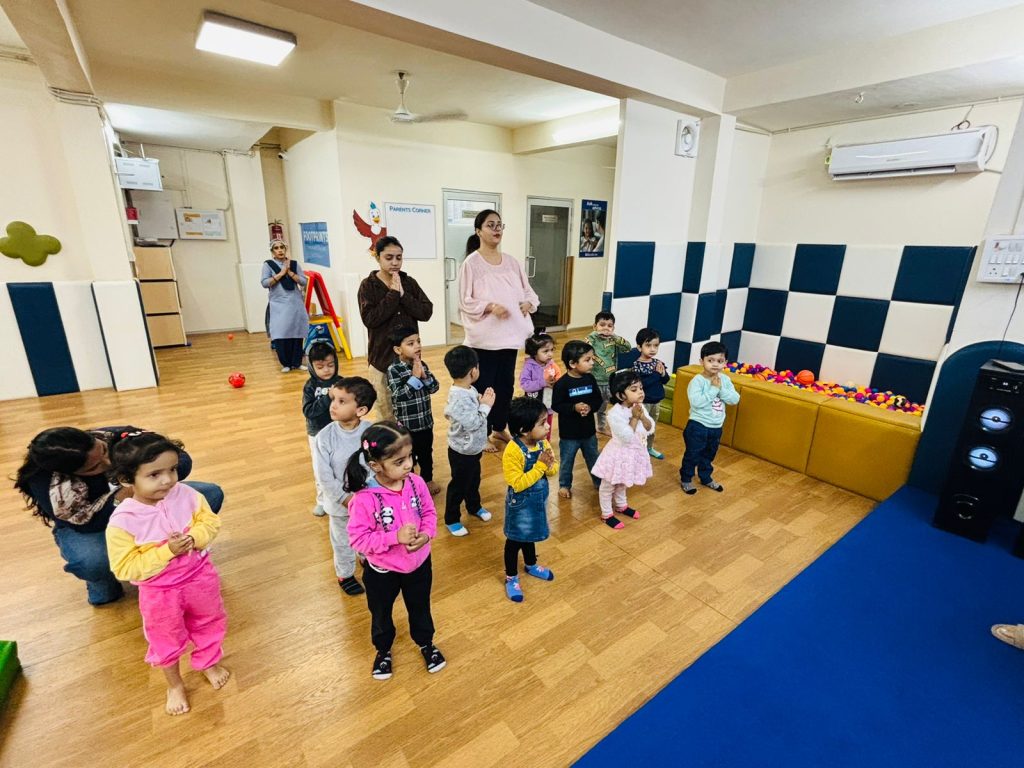
5. Outdoor and physical activities
These are extremely important for the health of our children and promote coordination, spatial awareness, and highly developed motor skills. Outdoor activities also promote an understanding of nature, enhanced physical endurance, and social interaction while providing an outlet for energy.
Suggested outdoor activities:
Nature Walks: Children can be taken on simple nature walks or scavenger hunts, where they can observe different plants, animals, and insects in their natural habitats. These walks promote observation skills and curiosity, and children learn to appreciate the natural world.
Obstacle courses: These activities for LKG children help improve balance, strength, and coordination. Set up a simple course lined with cushions, hula hoops, and tunnels. This is a great fun activity.
Ball Games: Allow the children to toss softballs, kick those balls, or catch the ball simply. This helps greatly with hand-eye coordination, motor skills, and teamwork.
6. Cognitive and educational activities
Academic skills such as literacy, numeracy, and problem-solving should be started early, such as in preschool. Try involving children in fun and beneficial activities for their brain’s development.
Suggested cognitive and educational activities:
Puzzle games: These are an excellent fun method to improve problem-solving skills in children. These also help develop spatial reasoning skills in children. Use jigsaw puzzles, simple wooden blocks, or shape sorters to engage the children in this cognitive play.
Building blocks: Legos or wooden blocks teach children about structure, balance, and symmetry, fostering creativity and problem-solving skills.
Shape and color recognition: Toys, objects, or flashcards can teach children about the different shapes and colors. Children can improve cognitive development and pattern recognition by sorting objects by color and shape.
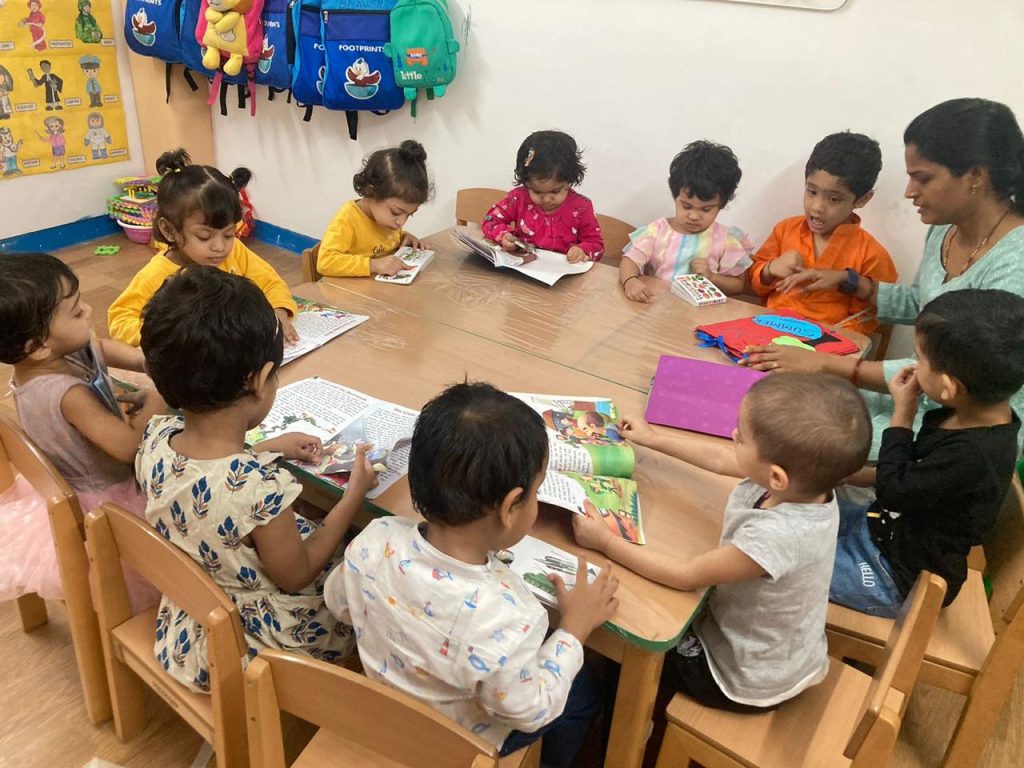
7. Science and exploration activities
Children are naturally curious, and activities involving scientific experiments allow them to understand the world around them, develop critical thinking, and enhance their problem-solving skills.
Suggested scientific exploration activities:
Playing with Magnets: Magnets are already fun to play with, and children can be taught the effect of opposing or attracting physical forces in an engaging manner.
Gardening: Children should be taught to plant seeds in vases and take care of them as they grow slowly. This helps them understand nature and the life cycle of plants.
Other simple science experiments: We can demonstrate simple things like pouring water on ice or mixing soda with vinegar to create a simple fizz. These are very basic ways to promote hands-on learning of basic scientific concepts.
Preschool is a time when children should be made aware of the importance of gaining knowledge in a fun way. The children learn to discover, grow, and gain knowledge. The activities mentioned above are ingenious ways to promote an environment where children can learn freely, thus making the world better for themselves. It is the duty of parents, teachers, and caregivers to promote foundational skills in children by using any or some of the activities listed above.
Shubham is an SEO expert dedicated to helping businesses to thrive in a digital landscape. His innovative marketing campaigns have significantly boosted the organization’s reach and engagement.

